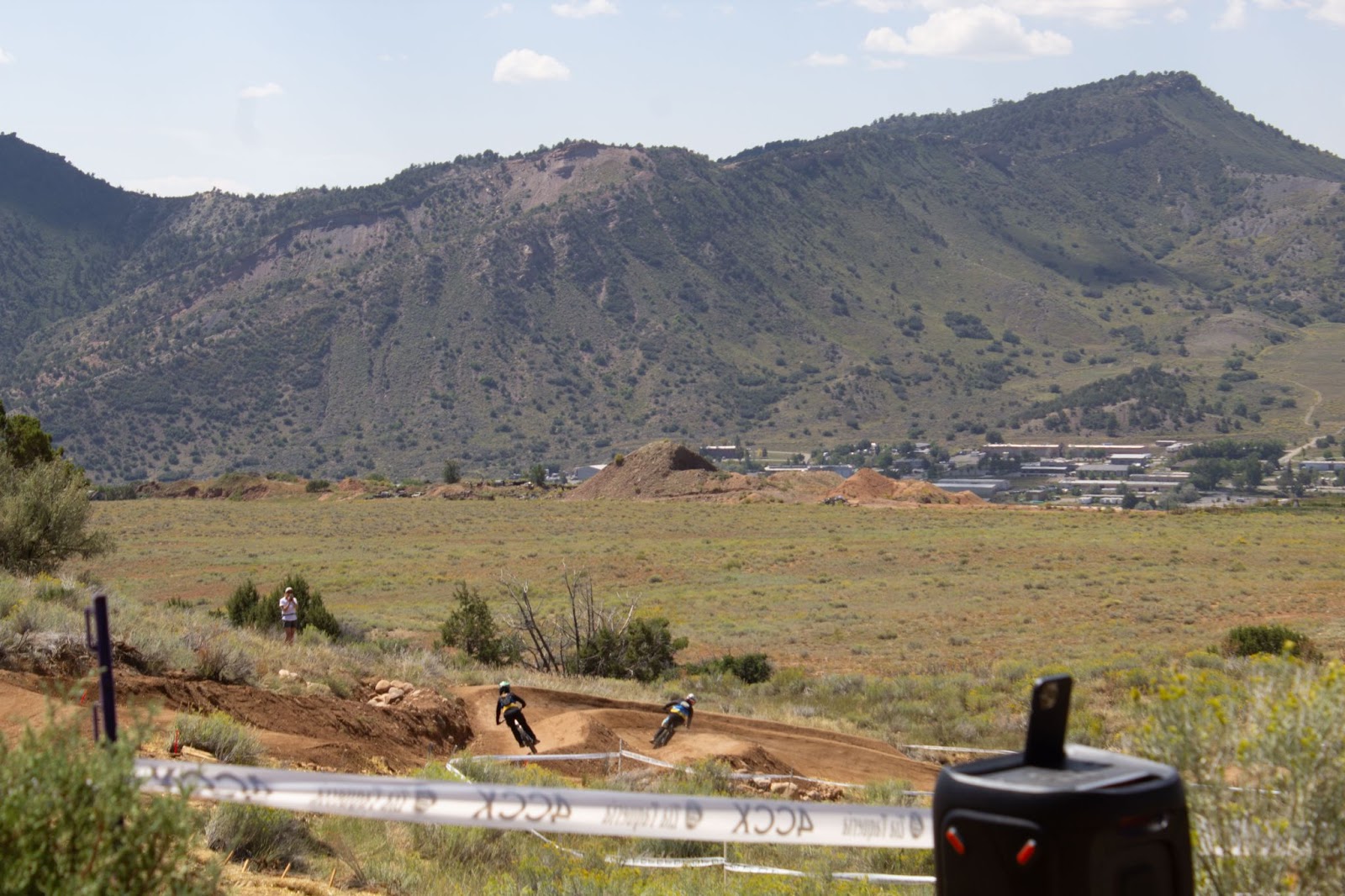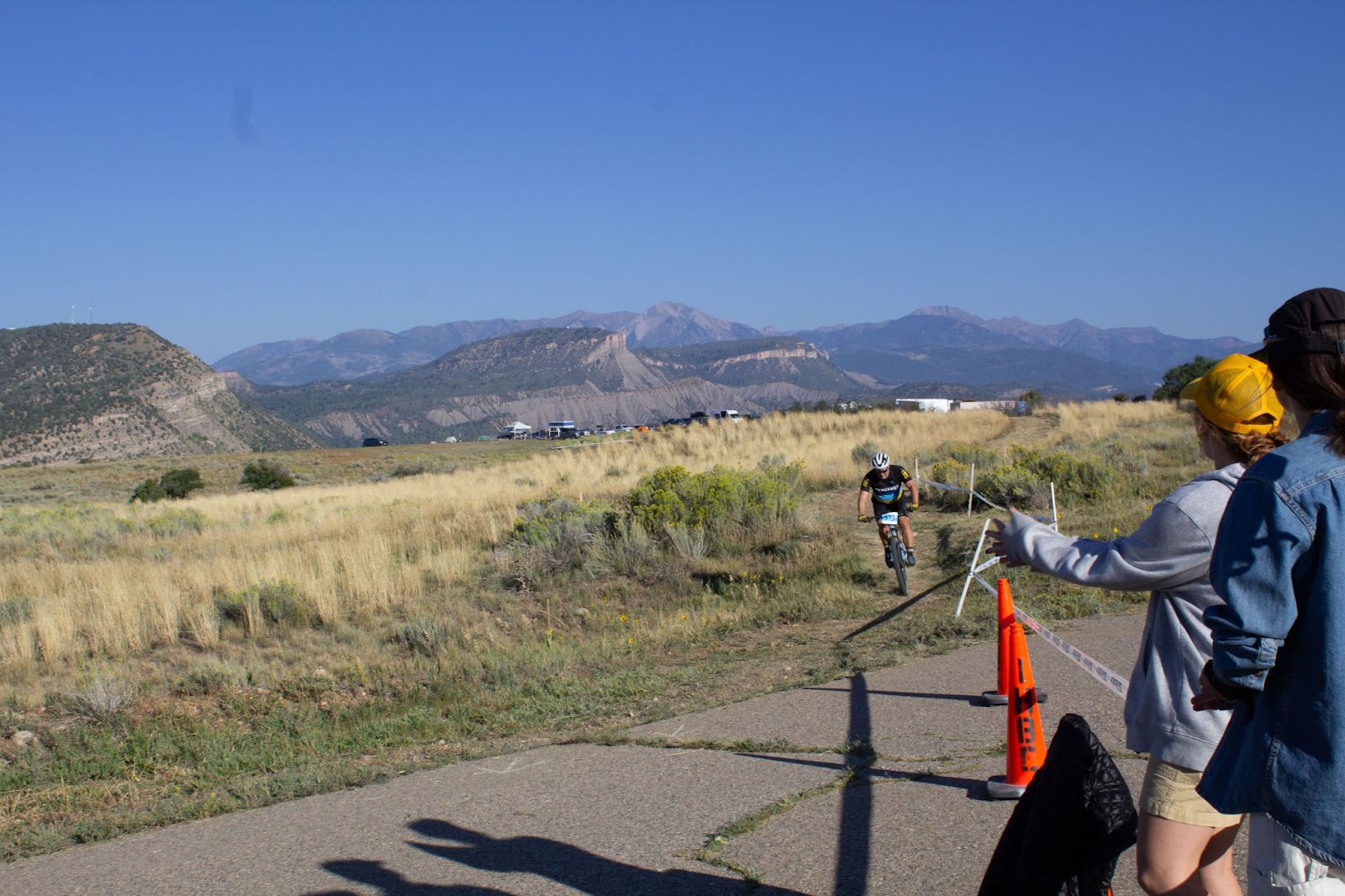Fort Lewis College Cycling celebrates its 30th anniversary this fall, and along each season comes new challenges and opportunities.
The team is looking forward to another year of racing, getting people on bikes, and building a fleet of happy and healthy cyclists, Chad Cheeney, the endurance coach of FLC cycling said.
The history of cycling in Durango runs deep, Cheeney said.
Often when college students move to Durango and join the team, they realize the depth of cycling culture in Durango, Cheeney said.
“I think when you’re a college kid, you come here, that’s the first thing you think of, you’re like, dang man, I’m in a big old storybook right now, and I’m way late in the chapters,” Cheeney said.
Over the past 30 years, the FLC Cycling team has trained three olympians, a bunch of national champions and many professional cyclists, Cheeney said.
This success and legacy comes with recognition Cheeney said.
“Ninety-five percent of our kids knew about us since they were a freshmen in high school, or since they started cycling,” he said.
Michaela Thompson and Hayden Bevington, two FLC students on the cycling team can vouch for this.
Thompson, a fifth-year at FLC has been to nationals all five years of her collegiate cycling career, and placed top 5 in USA collegiate women’s varsity cyclocross nationals in 2023, she said.
Thompson started cycling her junior year of high school in Boulder, and when she chose where to attend college, she knew she wanted to go to a school that offered that, she said.
The geography of Durango was also a deciding factor for Thompson, she said. “Durango is so beautiful and perfect for cycling,” she said.
Bevington, a first-year at FLC from Salida, also knew about the FLC cycling team before she joined this year. Bevington’s father attended FLC for college before the team was around, however his experience in Durango helped make the choice in college clear to her, she said.
“I knew that this was the place to be,” Bevington said. “It’s just so well known that this is the best cycling town, the best cycling program.”
The walls of the FLC Cycling office on FLC campus carrying cycling posters and jerseys from USA Cycling Nationals
At the moment the team is finishing their mountain biking season. Right now, the team is focusing on individual wins and individual athletes, Cheeney said.
When national competitions come around, it turns into much more of a team sport, Cheeney said. “We all got to do this to win the title,” he said.

Downhill racers tackle the Dual Slalom event at the FLC Squawker MTB race on Sept. 7
There are around 150 athletes on the team, and for a team at a college with less than 4,000 students, that percentage is large, Cheeney said.
After joining the team her first year, Thompson was surprised at how big of a team FLC Cycling was. “Because it is,” she said.
With this large of a team that isn’t part of the National Collegiate Athletics Association comes with a price. Although the FLC cycling team is funded by the Athletics Department at FLC, it’s still not enough, Cheeney said.
“We’re in a grey area of athletics where we’re not officially an NCAA sport,” Cheeney said. Although that is a barrier, the Athletics department at FLC does their best to include the team in promotion, Cheeney said. “So that goes up and down over the years, but they have our back for sure.” Cheeney said.
The team has to come up with an additional minimum of $40,000 a year to bring the team to races and keep things running, Cheeney said. This can be a challenge for the staff to fundraise while still coaching and running a program, he said.
Cheeney looks forward to the future in having, “more of a solid foundation financially and structurally to be able to handle 150 kids a year, so that’s like our missing piece,” Cheeney said.
Although the funding is a struggle, the team is still able to offer a “consistent package” for students to enter, have a good time, and ride bikes, Cheeney said. “That’s our main goal, still, to help make dreams, cycling dreams come true,” Cheeney said.
Many people are unaware the team caters to beginners too, Cheeney said.
“We’ll take anybody, we’ve taken riders who have never, barely even mountain biked, didn’t even have a bike and we’ve gotten them on a bike and got them to races right alongside some of those Olympians,” he said.
Bevington also encourages joining the team at any level and learning as you go. You can make it what you want it to be, she said.
Even if team members aren’t beginners, coaches often push them to work in other disciplines of cycling, such as road biking or cyclocross, Thompson said.
“Chad will be like, ‘Come on, just like, come to one practice or something,’ and like nine times out of 10, they’re like ‘Oh my god, this is so sweet,’” Thompson said.
There’s one big thing Thompson said is engrained in her and the team.
“It’s all about the fun,” she said. “Never forgetting the feeling.”
Although the FLC Cycling team is large, some students aren’t aware of the team.
Avion Aitson, a first-year majoring in Business Administration said that she sees them around but the team isn’t on her radar. The team still impresses her, she said.
“Cycling seems to be really hard here, just from the amount of hills and stuff, so I think it’s great,” she said.
Haylee Wilkie, a first-year majoring in geology said she sees so many people on bikes around campus and she’s aware of the team, but not a lot about what they’re up to.
Other students are familiar with their activities.
“I think they’re pretty badass,” Asa Worthington, a second-year majoring in political science said. He has been to two or three of FLC Cycling’s events, and they were stellar he said.
“Where I’m from cycling isn’t that big of a deal, so I wanted to see what ‘really good’ looked like,” he said.

Bystanders cheer on an FLC rider in the XC race at the FLC Squawker MTB Sept. 7
Cheeney understands that there might not be as much awareness around the sport because it’s not as traditional as football. “We’re out in the woods,” Cheeney said. “There’s no stadium per se.”
This separation can make student awareness of the sport difficult, but even though there’s a level of separation, student support matters, Cheeney said. “It adds this level of pressure and sport,” he said.
“It’s not like extremely spectator friendly,” Thompson said. Many of the races are outside of Durango which can make viewing difficult.
Although many of the cycling races are farther away, there are also home races that are more accessible to students.
One of these races was the FLC Squawker MTB race Sept. 7-8. “I wish there were more people that came up and watched,” Thompson said.